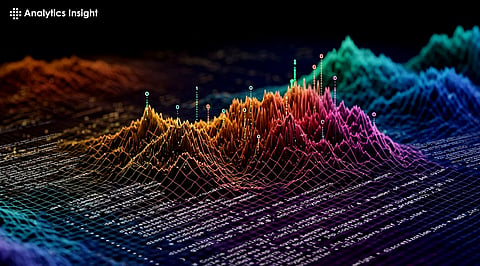

AI now creates the algorithms that power its own training
Mathematicians held records for 50 years until AlphaEvolve broke them
The hidden reason this changes everything about computing's future
AI can now create better algorithms than human engineers. Google's latest breakthrough turns artificial intelligence from a tool into a collaborator that improves its own foundation.
The tech giant recently unveiled AlphaEvolve, an AI agent that designs new algorithms by combining Gemini language models with evolutionary computing. Early results show it boosting data center efficiency and solving math problems that stumped experts for centuries.
AlphaEvolve uses a team of large language models to generate potential solutions to problems. The system pairs Gemini Flash, Google's fastest model, with Gemini Pro, its most powerful model. Together they propose computer programs that might solve the target problem.
The AI doesn't just guess blindly. It tests each solution with automated evaluators that score the quality and accuracy of each program. The best solutions are kept and used to inspire the next round of ideas.
At the heart of AlphaEvolve is a process similar to natural evolution. Programs that perform well become "parents" for the next generation of solutions. The system continuously improves its answers through this cycle of proposal testing and refinement.
DeepMind designed this AI agent to work on problems where progress can be clearly measured. This makes it especially useful for mathematics and computer science where solutions can be proven correct or incorrect.
Also Read: Will Google’s Gemini AI Help or Harm Children’s Digital Experience?
Google has already put AlphaEvolve to work in its massive data centers. The AI discovered a simple but effective method to help the Borg system run more efficiently.
This solution has been running in production for over a year and recovers about 0.7% of Google's worldwide computing power. While that might sound small at Google's scale it means thousands of additional tasks can run at any moment without building new data centers.
AlphaEvolve is also helping design better computer chips. It suggested changes to a key circuit in Google's Tensor Processing Units the specialized chips that power AI systems like Gemini itself.
For AI training AlphaEvolve found a better way to handle matrix multiplication, a core operation in AI systems. This sped up a critical part of Gemini's architecture by 23% cutting overall training time by 1%.
AlphaEvolve isn't just practical. It's making pure mathematical discoveries too. The system found a new algorithm for multiplying 4×4 complex-valued matrices using only 48 scalar multiplications. This beats Strassen's algorithm from 1969 which was previously considered the best approach.
When tested on over 50 open math problems AlphaEvolve matched state-of-the-art solutions in about 75% of cases. This shows it can rediscover what human mathematicians have already found.
Even more impressive AlphaEvolve improved on the best known solutions in 20% of the math problems it tackled. One notable achievement came in the kissing number problem. This 300-year-old geometry challenge asks how many spheres can touch a central sphere without overlapping.
AlphaEvolve found a configuration with 593 spheres in 11 dimensions setting a new record. This discovery shows how AI can help mathematicians explore spaces too complex for human intuition alone.
Google is building a user-friendly interface for AlphaEvolve and plans to offer access to selected academic users through an Early Access Program. While currently focused on math and computing DeepMind believes AlphaEvolve could transform other fields.
Future applications might include materials science, drug discovery and sustainability challenges. Any problem that can be expressed as an algorithm and automatically verified could benefit from AlphaEvolve's approach.
AlphaEvolve marks a new chapter in our relationship with AI systems. This implies a paradigm shift where AI is no longer considered a tool but instead is a partner in discovery.
This progression follows a clear pattern in AI development evolution: initially, machines would master some games. After that, they learned to generate content. Now, they are developing algorithms that power computing itself.
The boundary between human and machine creativity continues to blur. As these systems improve, they may work on problems that we have not even considered solving as of now.
Also Read: Google's Gemini 2.0 AI Now Powers Robots With Real-World Skills
